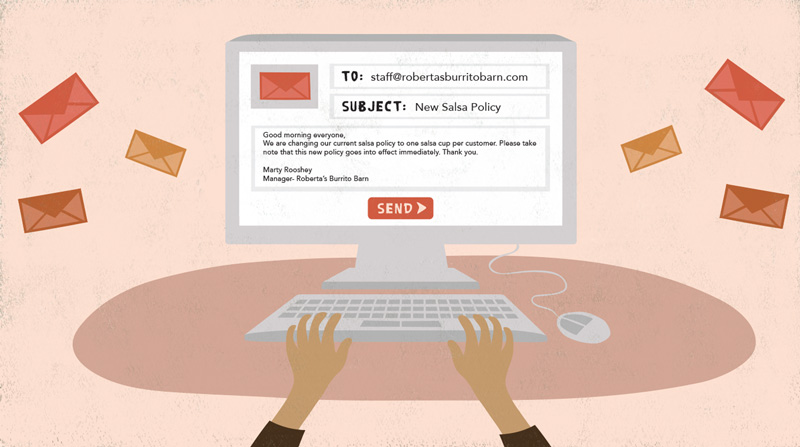
Importance of email in business
Email plays a crucial role in the business world due to its efficiency, effectiveness, and wide range of capabilities. Here are some key reasons why email is important in business:
Professional Communication: Email is a widely accepted form of professional communication, allowing for clear, concise, and recordable exchanges. It is often preferred for formal communication, including official announcements, policy updates, and contractual matters.
Documentation and Record Keeping: Emails provide a written record of communication, which is essential for tracking decisions, agreements, and responsibilities. This archival capability makes it easier to retrieve information for future reference, audits, or legal purposes.
Efficiency and Speed: Email allows for the quick dissemination of information, enabling timely communication. It facilitates instant delivery of messages, regardless of the geographical location of the recipients, leading to faster decision-making and productivity.
Cost-Effective: Compared to traditional mailing methods, email is more cost-effective, saving on paper, postage, and printing costs. This makes it an economical option for businesses, especially for small and medium-sized enterprises.
Attachment and Integration Abilities: Emails can include attachments, allowing for the easy sharing of documents, images, and other files. They can also integrate with other business tools and systems, enhancing workflow and project management.
Global Reach: Email breaks down geographical barriers, enabling global communication. It’s an essential tool for businesses operating in multiple locations or engaging with international clients and partners.
Marketing and Promotion: Email is a powerful tool for marketing and customer engagement. Businesses use email marketing to reach out to customers with newsletters, promotional offers, and personalized content, fostering customer relationships and brand loyalty.
Flexibility and Accessibility: Email can be accessed from various devices, including smartphones, tablets, and computers, providing flexibility and convenience. This accessibility ensures that employees can stay connected and responsive even when they are out of the office.
Security and Privacy: Emails can be encrypted, ensuring the security and privacy of sensitive business information. This is particularly important for industries that handle confidential data.
Environmentally Friendly: By reducing the need for paper-based communication, email is a more environmentally friendly option, aligning with the growing trend of businesses seeking to reduce their carbon footprint.
Overall, email is an integral part of modern business operations, facilitating efficient, effective, and professional communication across various levels of an organization and with external entities.